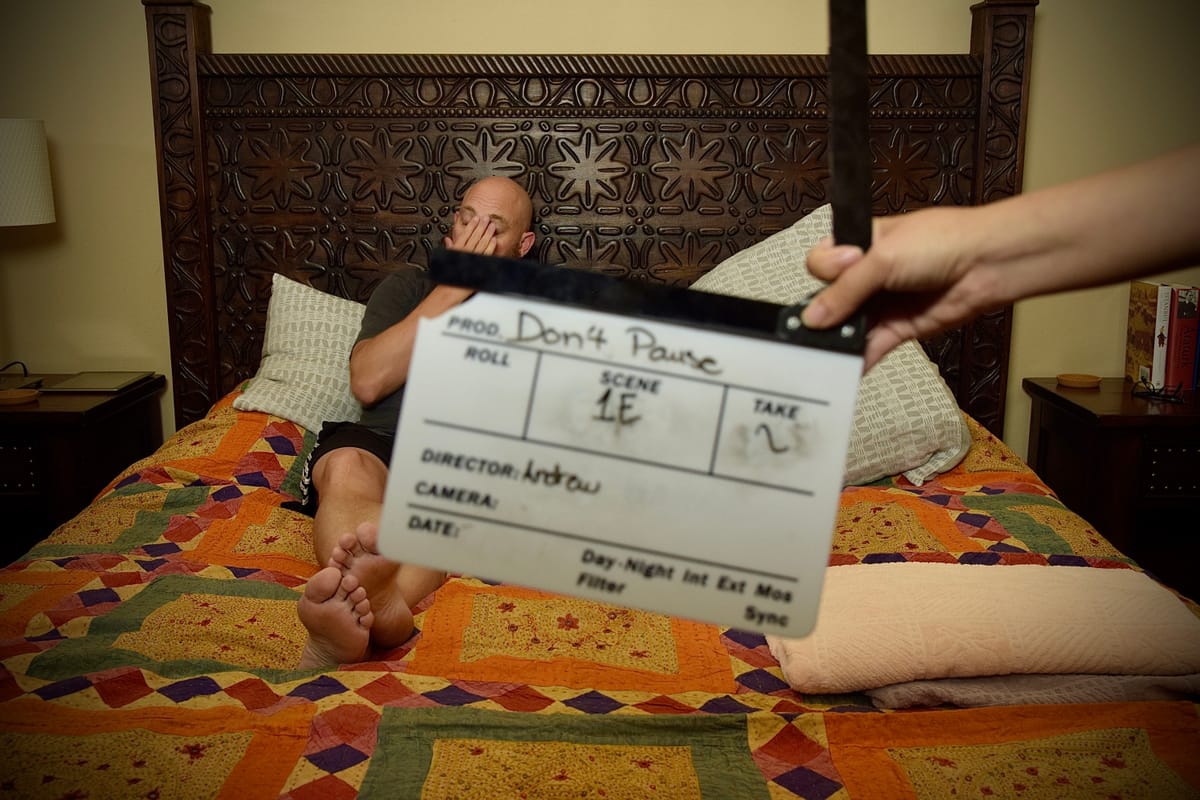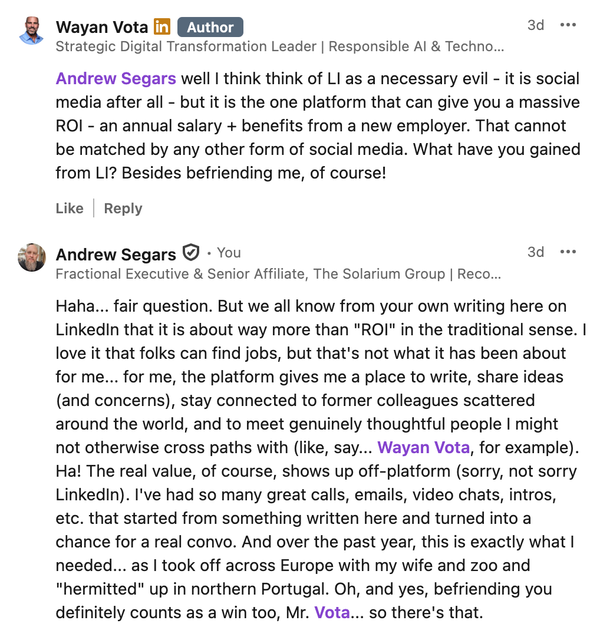What’s Your Side Gig, Bruh?
The fractional work model is booming in the private sector. How can you make it work for you?

That was one of the first things people asked me when I moved to Austin back in 2017 after leaving federal service for my "strategic sabbatical."
Not: “What do you do?”
Not: “Where do you work?”
Not: “Oh, you were in Kazakhstan? Cool, cool.”
Just: “What else are you building? What's your side hustle?”
At first, I rolled my eyes. Or maybe I just looked confused. Then I realized—oh. They’re serious.
Fast forward to 2025. I’ve just been notified that I’m leaving federal service again (this time, not exactly voluntarily... ahem).
But here’s the thing: It’s not a crisis. It’s a catalyst. And I'm learning from my earlier experience.
I’m not looking for a full-time job.
No more career on other people's terms.
I'm doing me this time around.
I’m looking for great gigs and great people:
- Fractional roles
- Strategic projects
- Work that matters—without eating my entire life
- People who inspire, challenge, and collaborate
So, what is fractional work, exactly?
Fractional work basically means bringing in experienced professionals—often executive-level talent—on a part-time, temporary, contract, or project basis. It's like having a VP of Strategy or a Chief Operating Officer for 10 hours a week, not 50.
In the private sector, this model is booming. Startups and small businesses, in particular, are using fractional leaders to access top-tier expertise without blowing their budgets on full-time salaries. According to a recent report by Deloitte, over 61% of fast-growing companies reported using fractional or interim executives in the past year.
The appeal? Agility. Focus. Cost-efficiency.
And fractional roles aren’t just for C-suite types. Companies need fractional comms leads, partnership builders, operations strategists, project managers, and technical advisors. Sound familiar? Interesting?
"The future of work is fractional. And those who learn to adapt will build more sustainable, more human careers." — Kevin Delaney, CEO of Charter
So, back to me. Always back to me. What does this mean for me as I transition from a career in international development and diplomacy? Well, here’s what I’m not doing:
- No green #OpenToWork ring on LinkedIn
- No resume blast into the ether
- No “Let’s grab coffee?” DMs to everyone I’ve ever met
- No rage-applying to jobs with the word “international” in the title
I've done the full-time international development thing. I'm proud of the work. Seriously proud. I’ll continue to do the work—just differently. On my terms.
- A few hours a week on something meaningful? Absolutely.
- A role that flexes my skills and my schedule? Yes, please.
- Work that lets me live in Portugal and write a novel? That’s happening. (Seriously.)
- Strategic engagement that allows me to stay involved in international development work, writ large? 100%.
This isn’t less commitment. It’s different commitment. Call it a remix. Call it a reset. Call it Andrew 2.0. (Maybe 3.0?)
The work still matters. But the model can change.
And it already is.
LinkedIn has seen a 78% increase in posts mentioning "fractional work" over the last year. Platforms like Gofractional, Catalant, and InterimExecs are changing the game. Demand is growing—especially for people who bring global thinking, adaptive leadership, and mission-driven experience. If I had to predict, this will become even more popular for some international development roles.
"Work is no longer a place you go or a title you hold. It's a series of problems you choose to solve." — Reid Hoffman, LinkedIn co-founder
A series of problems you choose to solve? If that doesn't sound like international development, I'm not sure what does. And, it also sounds pretty damn cool to me, if I’m being honest.
So, if you're thinking about a shift (or being forced to), don’t overlook fractional work. Continue to look for full-time gigs, if that’s your jam, but don’t sleep on fractional work. Think big, but also small. Build the job you want, instead of endlessly scouring job boards for that "perfect" role.
Start where you can. You may not be able to control random HR bots reviewing your resume, but you can reconnect with people who get it. People you trust. Be open to new types of work that fit your life, not just your title.
I listed a few great platforms above, but check out this great list from Dr. Elise Victor on LinkedIn. And more importantly—don’t underestimate your network.
Reach out. Reimagine. And yeah, maybe build something new.
This isn’t the end of a career.
It’s the beginning of a portfolio.
Go get it, bruh!




